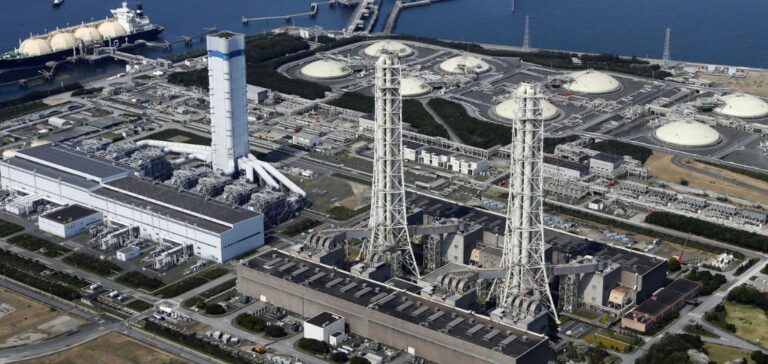Marubeni and Taisei announce their joint venture to develop a wood-based biomass power plant in the Ishikari New Port area in Ishikari City, Hokkaido.
Ishikari Biomass Power Plant: An Initiative to Revitalize Local Forestry
The plant, known as the Ishikari area biomass power plant, is developed by a special purpose company called the Ishikari area Biomass Power Corporation (IBP), which is registered as a “biomass power plant for local resources.” The project aims to consume locally produced fuel, mainly composed of underutilized wood from the central Hokkaido area, to provide renewable energy.
The biomass power plant has an energy production capacity of 9,950 kW and is expected to contribute to the revitalization of local forestry. IBP signed a loan agreement with Shinkin Central Bank and five other local Shinkin banks located in Hokkaido. The first advance has been successfully executed. Marubeni, Taisei and IBP are working closely with the city of Ishikari as well as the fuel suppliers to begin operations of the plant in January 2026.
Marubeni has developed six wood-based biomass power plants. This project is the company’s second plant to involve local consumption of locally produced fuel after the Godo biomass power plant, which began operations on April 2, 2023. Marubeni’s medium-term management strategy, “GC2024,” positions green strategy as one of the core policies and will continue to develop renewable energy projects by leveraging knowledge gained in Japan and abroad.
Ishikari area Biomass Power Corporation: responsible for construction and sale of electricity
The Ishikari Area Biomass Power Plant will be located at 730-1, Shinko Chuo, 2-chome, Ishikari City, Hokkaido, and is expected to have an estimated annual energy output of approximately 8,000 million kWh, which is equivalent to the power supply of about 25,000 ordinary homes. The plant will use wood chips as fuel, which are 100% domestic wood. Construction is scheduled to begin in November 2023, with commercial operations scheduled to begin in January 2026.
Ishikari area Biomass Power Corporation will be headquartered at 196-1, Shinko Chuo, 2-chome, Ishikari City, Hokkaido, and will be responsible for construction of the wood-based biomass power plant, supply and sale of electricity, and other related business activities. Marubeni Clean Power Corporation and Taisei Corporation are investing in the project, each with a 50% stake.
Thus, Marubeni and Taisei’s joint venture to develop the Ishikari area biomass power plant is an important step toward realizing a sustainable energy future for Japan. The project’s emphasis on the use of locally produced fuel and the revitalization of local forestry will not only contribute to Japan’s renewable energy goals, but also to the socio-economic development of the region.






















